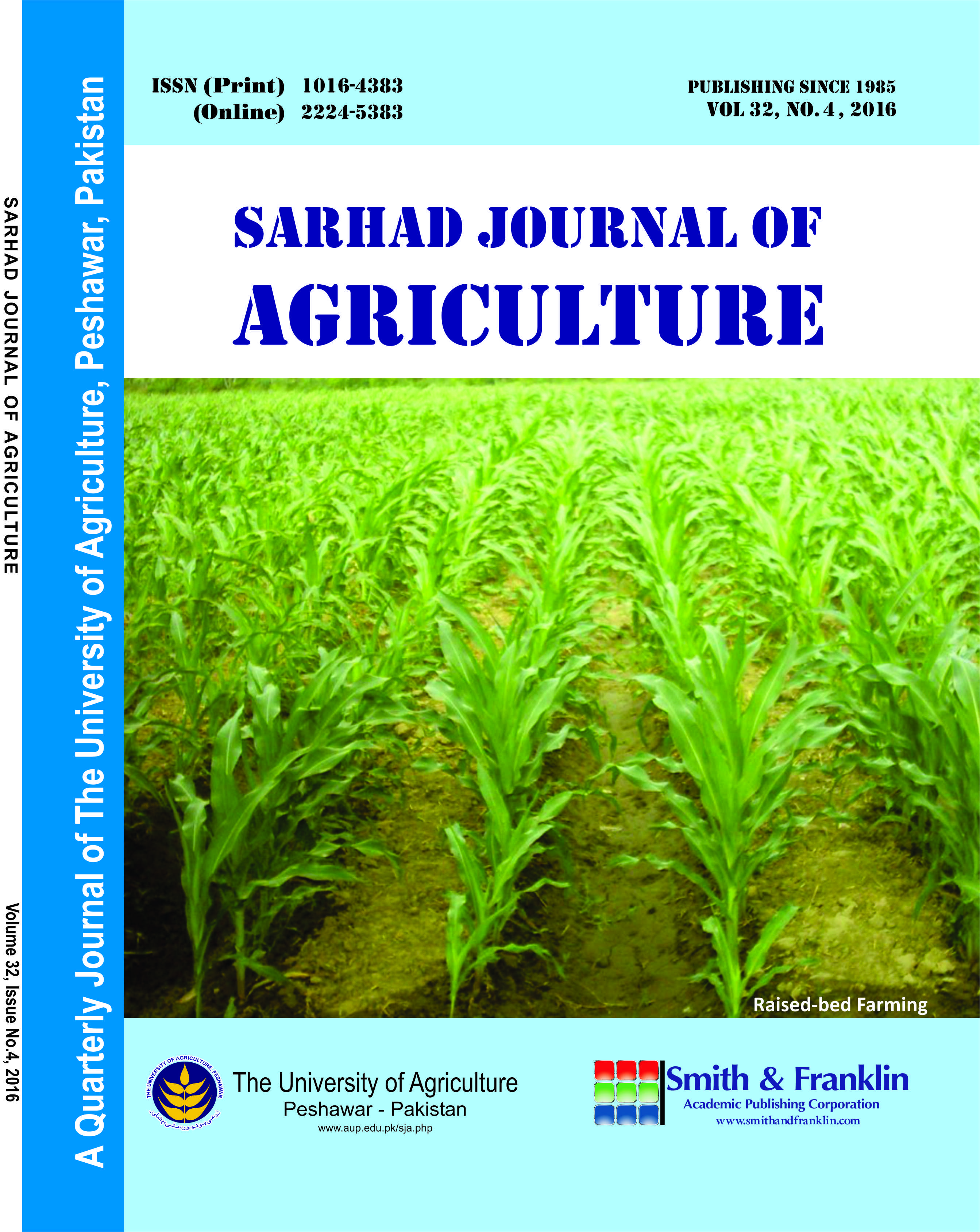An Analysis of Energy Supply and Oil Price Shocks on Agricultural Productivity of Pakistan
Yasir Arafat1*, Syeda Nabahat2, Hafiz Ullah3, Afaq Ali Muluk4 and Azra5
ABSTRACT
The present study attempts to analyze the impact of energy supply and oil price shocks on agricultural productivity in Pakistan using time series data from 1990 to 2017. To this end, the data was retrieved from Pakistan Bureau of Statistics, World Development Indicators and Pakistan Agricultural Statistics (PAS). Energy supply, Foreign Direct Investment and Oil prices has been taken as an explanatory variables and determinants of agricultural productivity in Pakistan. The study uses Autoregressive Distribution Lag model (ARDL) to measure the correlation between dependent and independent variables. In order to know the stationarity of variables, unit root test is used by employing Augmented Dickey Fuller (ADF) test. It is found that energy supply and foreign direct investment affect agricultural productivity positively and significantly while oil prices negatively affect the productivity in Pakistan. It is also observed that Pakistan lacks behind in using modern scientific techniques of testing and processing agriculture land and seeds for higher per acre yield which affects farmers directly. Most of the farmers either use electricity or oil to run the tube well for irrigation, increase in the prices of both electricity and oil affect crop productivity negatively. Consequently, government should provide electricity and oil in subsidized rates to the farmers at the time of cultivation and irrigation.
To share on other social networks, click on any share button. What are these?







